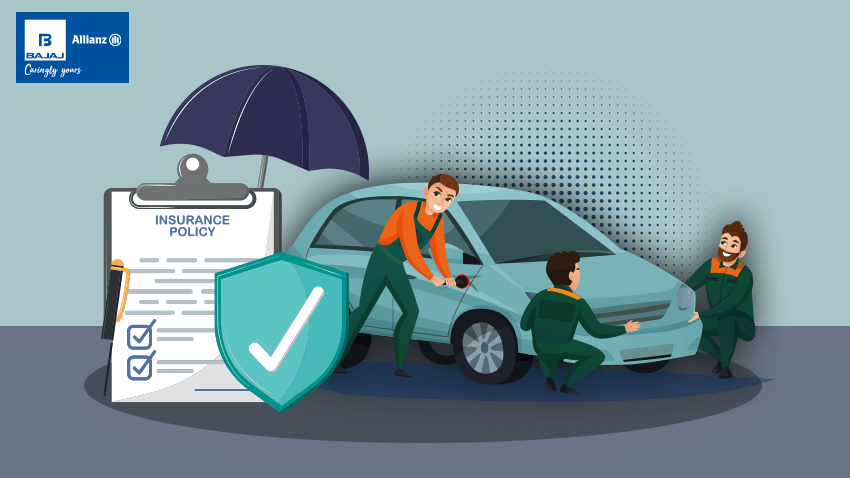Car modification is the process of changing a car's factory settings to improve its performance, appearance, or functionality. Car modifications can be a great way to personalize your car and make it more enjoyable to drive. However, it's important to be aware of the potential consequences of modifying your car.
For example, some modifications can affect the
car insurance premium, and they may also void your warranty. If you're planning to modify your car, it's essential to inform your insurance company about the modifications. Failure to disclose any changes could potentially lead to coverage issues or even the denial of an insurance claim.
Car Modifications Impact the Car Insurance Premium
Here’s a list of modifications that should be informed to the insurance company:
- Engine Modification: Any modification related to the engine such as adding a turbocharger or supercharger, upgrading the exhaust system, or installing a performance chip. These modifications can significantly increase the value of your car and affect its risk profile, so it's crucial to inform your insurance company about them.
- Body Modification: This is often done to improve the car's visual appeal and make it appear more macho, or for functional reasons such as boosting its load-bearing capacity. Any changes to the vehicle's body, for any cause, may change its purpose and must be reported to the insurance.
- Suspension Modification: Lowering or increasing your vehicle's suspension can affect its handling, stability, and danger of accidents. It's critical to notify your insurance carrier if you've made any changes to your suspension system, such as installing coil-overs or air suspension. They may need to amend your coverage as an outcome of the altered risk factors associated with these modifications.
- Wheel Modification: Updating your wheels and tyres can improve your vehicle's appearance and performance. Modifications such as installing custom wheels, low-profile tyres, or increasing the size of your wheels, on the other hand, can influence the vehicle's handling and raise the possibility of an accident. It is important to notify your insurance company of these changes so that they can appropriately analyze the risks and select suitable coverage.
- Safety Modification: The installation of anti-theft devices, such as alarm systems, immobilisers, or GPS monitoring devices, can assist prevent theft and potentially reduce your insurance premiums. It's critical to notify your insurance company about these changes, as they might provide discounts or make changes to your coverage based on the added safety features.
- Light Modification: Upgrading your headlights and taillights, as well as installing extra lighting accessories like LED light bars or underbody lights, can increase visibility and appearance. However, these changes may be subject to regulatory constraints and may increase the risk of accidents or car theft. Make sure your insurance company is aware of any lighting alterations you have made to your car.
- Audio and Visual Modification: It is critical to notify your insurance company if you have installed high-end music systems, television screens, or other customised gadgets in your vehicle. These additions can significantly increase the value of your car and might require additional coverage or specialized policies to adequately safeguard them.
- Painting Modification: Changing the colour of your vehicle or installing vinyl wraps can be a fun way to personalise its look. However, these changes can have an impact on the car's market value and repair costs. Inform the insurance company of any colour changes or vinyl wrap alterations to your vehicle so that the value is correctly reflected in your coverage.
- Disabled Users Modification: It is important to inform your insurance company if you have made modifications to your vehicle to accommodate a disability, such as adding hand controls or wheelchair lifts. These modifications might require specialized coverage or endorsements to ensure adequate coverage for both your vehicle and your unique needs.
What Modifications do not affect your Four Wheeler Insurance?
Any modification done to your car changes the premium charged on the car. However, certain changes do not adversely affect the premium if they are likely to decrease the risk of an accident or theft. For instance, insurance companies don’t count parking sensor as a modification as it protects the car from the damage that may occur while reverse parking.
*T&C apply
Car insurance premiums are calculated according to a variety of parameters such as the car's make, model, specifications, mileage, market price, vehicle condition, accessories, and so on. When any covered vehicle is modified, the parameters of the premium computation alter.
Wrapping It Up
It is essential to inform your
motor insurance company about any car modifications you make. This allows them to accurately assess the risks associated with the modifications and determine the appropriate coverage and premiums. Failure to disclose modifications could result in coverage issues or claim denials. Always reach out to your insurance company directly to discuss the specific modifications you have made and understand how they may affect your policy.
It's important to note that not all insurance companies will treat all modifications the same way. Some companies may be more lenient than others, and some may even offer discounts for certain types of modifications. So, it's important to check with your insurance company specifically to see how they will handle your modifications.
*T&C apply
Insurance is the subject matter of solicitation. For more details on benefits, exclusions, limitations, terms, and conditions, please read the sales brochure/policy wording carefully before concluding a sale.
 Service Chat:
Service Chat: 

